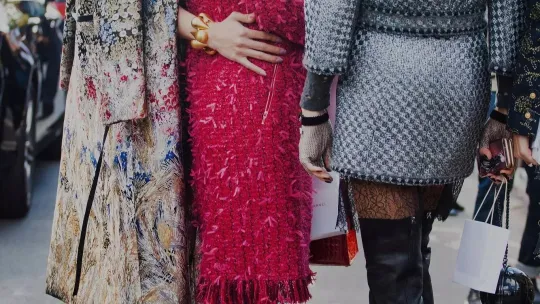
Luxury hotels and restaurants: what are the trends in 2025?
The luxury hotel and restaurant sector shows no signs of slowing down, marked by exceptional growth and innovations that are pushing back the boundaries of customer experience. This growth is fuelled by increased travel, with more and more customers looking for exclusive experiences, absolute comfort and highly personalised services. What are the main trends for 2025, and what do they tell us about consumer expectations?
Customer experience and personalisation at the heart of new trends
The importance of ultra-personalised service
In 2025, differentiation in the luxury hotel and restaurant sector will no longer be based solely on the beauty of the surroundings or the quality of the service, but on the ability to offer an ultra-personalised customer experience.
In a world where standards are already very high, the most prestigious establishments are now banking on hyper-personalisation: a tailor-made welcome, anticipated preferences, individualised recommendations... Every detail counts in creating an intimate relationship with the customer.
The notion of well-being is also becoming central to this approach. It's no longer just a matter of offering a spa or a massage menu, but of designing an overall experience, aligned with the customer's physical, emotional and cultural needs. Tailor-made nutrition, optimised sleep, rejuvenating activities... everything is designed to make the stay a deeply enjoyable and relaxing experience.
With this in mind, luxury refocuses on the human element, listening and uniqueness. Offering a feeling of uniqueness is becoming the new form of refinement.
The key role of technology in luxury hotels
To achieve this level of personalisation, technological integration is playing an increasingly strategic role. Far from replacing human warmth, technology enhances hospitality. It helps to streamline journeys, anticipate needs and offer intuitive, even invisible, services.
In 2025, artificial intelligence, connected objects and predictive data are fully integrated behind the scenes in luxury establishments. Automatic adjustment of lighting and temperature according to the customer's preferences, contactless check-in, virtual concierge services available 24/7... the customer experience is becoming both more fluid and more immersive.
Technology is also being used to enhance well-being through innovative devices such as intelligent mattresses, sleep analysis and customised well-being programmes that can be accessed from a tablet in the room. These tools are not just gadgets: they are part of a new generation of luxury that is discreet, efficient and attentive to guests' most intimate needs.
Luxury gastronomy: towards more sustainable and committed catering
The rise of ethical and responsible gastronomy
In 2025, luxury gastronomy will no longer be limited to excellent flavours or rare products. It is increasingly part of an ethical and responsible approach, attentive to the environmental and social concerns of its customers. This development marks a turning point in the culinary experiences offered by top-of-the-range establishments, which must combine refinement and conscience.
Chefs now favour short supply chains, seasonal produce and ingredients from organic or sustainable farming. Vegetables are playing an increasingly important role on top tables, and menus are being redesigned to reduce their carbon footprint without sacrificing creativity.
Beyond the plate, the entire chain is being rethought: the fight against waste, sustainable management of resources, promotion of local producers, etc. Luxury is making a sincere commitment, and this is becoming a real criterion of choice for new consumers looking for coherence between pleasure, well-being and values.
The rise of temporary restaurants and immersive concepts
Another major trend is the explosion of ephemeral restaurants and immersive concepts. These formats offer a highly emotional experience that goes beyond a simple meal to become a genuine sensory and cultural event.
Whether it's a dinner in an unusual location, a menu designed by a top chef in a scenographic setting, or a collaboration between gastronomy, art and technology, these immersive culinary experiences allow luxury brands to reinvent themselves, surprise and create a strong bond with their audience.
These initiatives respond to a growing need for emotional exclusivity: customers are no longer looking just to eat well, but to experience a story through their plate.
To understand the profound transformations of the luxury industry, from experiential marketing to high-end hospitality, Sup de Luxe offers the MSc Global Luxury Brand Management, a programme of excellence 100% in English. Designed to train the future leaders of the sector, this course offers a complete immersion in the universe of luxury through advanced teachings, concrete projects and a resolutely international approach.
Sustainable development and new expectations of luxury customers
The rise of eco-responsible hospitality
Luxury hospitality is strongly moving towards an eco-responsible approach. Far from being a simple marketing argument, environmental sustainability becomes a pillar of the customer promise. Bioclimatic architecture, use of recycled materials, intelligent management of water and energy, elimination of single-use plastic… establishments integrate these commitments from the design of their spaces.
From renowned hotel chains to small confidential boutique hotels, many are betting on sustainable practices without compromising on refinement. Responsible luxury sacrifices neither comfort nor elegance. On the contrary, it redefines the contours.
The proposed experience becomes more harmonious, more respectful, in line with the values of a generation of demanding travellers, keen to reconcile pleasure and ecological awareness.
Gastronomy and hospitality: integrating ethical and societal values
Beyond the environment, luxury customers expect brands and establishments to embody strong and sincere values. In gastronomy as in hospitality, societal commitment becomes a criterion of differentiation. This involves responsible choices in sourcing, an inclusive recruitment policy, respect for partner artisans and producers, or solidarity actions on a local scale.
This new demand affects both form and substance: a luxury hotel or restaurant must now carry a vision, a project that goes beyond aesthetics and service. Local anchoring, transparency and positive impact on communities become markers of trust and loyalty.
Digitalisation and influence of social networks on the sector
The impact of influencers and customer reviews
The reputation of a high-end establishment is no longer built only in specialised guides or magazines, but also on social networks. Instagram, TikTok or Tripadvisor define in real time the image of luxury hotels and restaurants. A customer review or an influencer recommendation can propel a place or harm its credibility.
Influencers specialised in travel, gastronomy or well-being have become powerful prescribers. They create a bond of trust with their community and play a central role in consumer decision. For brands, it is therefore essential to develop well-targeted partnerships, which enhance the experience without distorting it. E-reputation management is now a strategic issue, at the heart of luxury professions.
Bookings and increasingly immersive digital experiences
The other revolution driven by digitalisation concerns the customer experience even before arrival on site. In 2025, the booking of a stay or a gastronomic dinner often comes with an immersive digital experience: virtual tour of the suite, online menu selection, personalisation of room ambience, instant messaging with staff… everything is designed to create an emotional connection from the first clicks.
This evolution fits into a logic of complete technological integration, which mixes comfort, anticipation of needs and fluidity of the journey. Artificial intelligence, augmented reality or voice interfaces enrich the experience without making it more complex. Digital becomes a natural extension of luxury hospitality, reinforcing the tailor-made dimension and accessibility of services.
Luxury hospitality and gastronomy represent a dynamic and innovative market. These attractive prospects are accompanied by challenges, particularly regarding personalisation, sustainability and technology integration. The players who manage to take advantage of these trends and meet the ever-increasing expectations of a demanding clientele will be the big winners of this new era full of promises.

